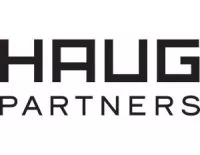On September 24, 2015, the U.S. Court of Appeals for the Federal Circuit affirmed summary judgment of non-obviousness of 18 claims from four patents protecting Shire's blockbuster drug Vyvanse® (lisdexamfetamine dimesylate). The ruling affirmed a decision by Judge Stanley R. Chesler of the U.S. District Court for the District of New Jersey, which found that the claims were valid (not anticipated and non-obvious) and infringed.
Frommer Lawrence & Haug LLP (FLH) represented innovator client Shire before the Federal Circuit and the District Court in lawsuits against five generic pharmaceutical manufacturers that filed Abbreviated New Drug Applications (ANDAs) with the U.S. Food and Drug Administration (FDA) seeking to market generic versions of Vyvanse®, and their Active Pharmaceutical Ingredient (API) manufacturer of lisdexamfetamine dimesylate API. The ANDA-defendants are Actavis LLC/Actavis Elizabeth LLC; Amneal Pharmaceuticals, LLC; Mylan Pharmaceuticals Inc./Mylan Inc.; Roxane Laboratories Inc.; and Sandoz Inc. The API manufacturer and supplier to each of the ANDA-defendants is Johnson Matthey Inc./Johnson Matthey Pharmaceutical Materials.
The Federal Circuit affirmed the District Court's summary judgment ruling that 18 patent claims from four of the FDA Orange Book-listed patents for Vyvanse® are non-obvious. The District Court had also found that the claims are infringed and not invalid for anticipation. The ANDA-defendants did not contest infringement or the Court's finding of no anticipation on appeal.
The Federal Circuit found that the "defendants have failed to raise a genuine issue of material fact that the asserted claims are obvious," and that "there is no genuine issue of material fact that the [asserted] prior art did not disclose or make obvious [lisdexamfetamine dimesylate]." The Court also found that the "hindsight nature" of Defendants' obviousness arguments depended on "retracing the path of the inventor." The Court further noted that Defendants' primary reference was listed on the face of the patents-in-suit, and "Defendants have the added burden of overcoming the deference that is due" to the U.S. Patent and Trademark Office and its examiners, but they did not meet their burden.
The patent claims that were the subject of the Federal Circuit's decision cover Vyvanse®'s active ingredient, the lisdexamfetamine dimesylate compound, and a method of using lisdexamfetamine dimesylate for the treatment of ADHD. The ruling prevents the ANDA-defendants from launching generic versions of Vyvanse® until the expiration of these patents in 2023.
Shire's team at FLH includes Ed Haug, Porter Fleming, Sandra Kuzmich, Angus Chen, Andrew Wasson, Jason Lief, David Zwally, Richard Kurz, Andrew Roper, Leann Clymer, Michael Harkness, Stephanie Roberts, Blaine Hackman, Kevin Georgek, Ying-Zi Yang, and Ali Berkin.
To view the Opinion, please click here.
The content of this article is intended to provide a general guide to the subject matter. Specialist advice should be sought about your specific circumstances.


